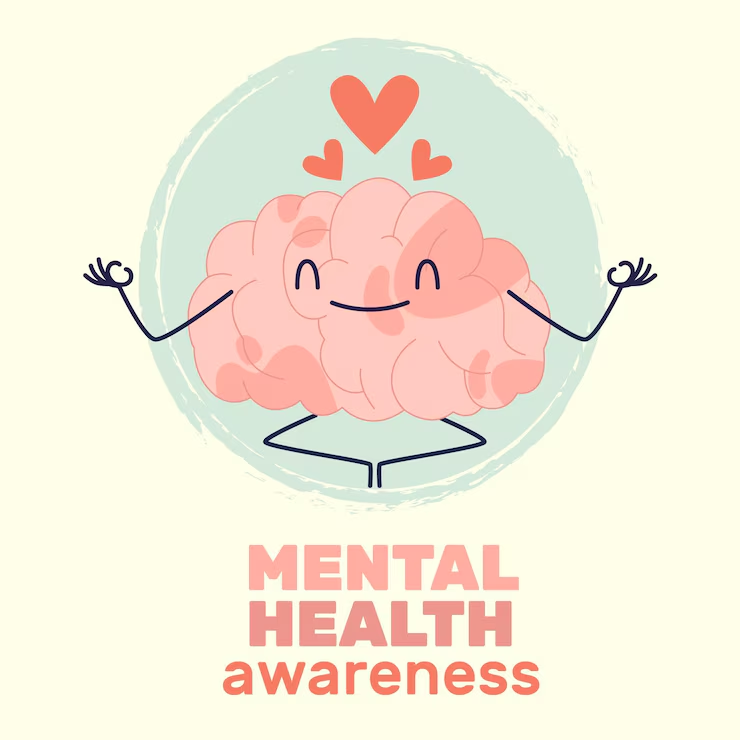Introduction
Mental health is a crucial element of overall well-being, shaping how we think, feel, and act. It affects our ability to handle stress, build relationships, and make important decisions. Despite its importance, discussions about mental well-being are often avoided or stigmatized. This blog aims to explore the significance of mental wellness, common challenges, and strategies to enhance it. .
1. Why Mental Well-Being Matters
Your emotional health impacts every aspect of life, including work performance, relationships, and quality of life. Ignoring or neglecting emotional well-being can lead to problems like anxiety, depression, and even substance abuse.
Link to Physical Health: Research shows that mental and physical health are interconnected. When emotional wellness declines, it may manifest physically through conditions such as heart disease or chronic pain. On the flip side, taking care of emotional health promotes stronger immunity and overall better physical health.
Impact on Relationships: Emotional well-being also affects your ability to maintain healthy relationships. If you are struggling emotionally, communication may break down, and social engagement becomes more difficult, putting a strain on relationships.
Work and Productivity: Emotional health is directly tied to productivity. When neglected, it can lead to fatigue, loss of focus, and poor job performance. Companies that prioritize mental well-being report higher employee satisfaction and output.
2. Common Disorders Affecting Mental Health
There are numerous disorders affecting emotional well-being. Here are some of the most widespread:
Anxiety Disorders: These disorders are among the most common and involve excessive worry, fear, or nervousness. They can interfere with daily life, causing both emotional and physical symptoms like a rapid heart rate or sweating.
Depression: Depression is marked by persistent sadness and a lack of interest in life. It can interfere with daily activities and impact relationships, sleep patterns, and physical health.
Bipolar Disorder: This disorder involves extreme mood swings from high-energy, euphoric states to severe depression. It requires ongoing treatment and management for stability.
Obsessive-Compulsive Disorder (OCD): OCD leads to repetitive thoughts (obsessions) and behaviors (compulsions) that interfere with daily life.
3. Contributing Factors to Emotional Health Challenges
Several factors can contribute to the deterioration of mental well-being. Understanding these can help in identifying triggers and addressing them early.
Genetic Predisposition: People with a family history of emotional health issues may be at greater risk of experiencing similar challenges.
Environmental Stress: Stressful life events like the loss of a loved one, financial difficulties, or trauma can trigger emotional health issues.
Lifestyle Choices: Habits like poor sleep, a sedentary lifestyle, or unhealthy eating can worsen emotional wellness, making it crucial to maintain a balanced lifestyle.
Chemical Imbalances: Some emotional health conditions are tied to imbalances in the brain’s neurotransmitters, affecting mood and behavior.
the importance of Mental Health
4. Recognizing the Signs of Emotional Health Problems
Spotting the signs of emotional health issues early can help in taking action. Here are some warning signs to look out for:
- Persistent sadness or hopelessness
- Mood swings
- Withdrawal from social situations
- Difficulty concentrating
- Changes in sleep patterns or appetite
- Physical symptoms like headaches without a clear cause
5. Strategies for Enhancing Mental Well-Being
To maintain good mental wellness, it’s important to take a holistic approach that addresses emotional, psychological, and physical needs.
Seek Professional Help: If you or someone you know is struggling, seek help from a professional. Therapy, like cognitive-behavioral therapy (CBT), can be an effective tool for managing symptoms and improving emotional wellness.
Mindfulness and Meditation: Practicing mindfulness can help keep you focused on the present and reduce symptoms of anxiety and depression. Incorporating daily mindfulness routines can foster a sense of calm and emotional control.
Exercise Regularly: Physical activity isn’t just beneficial for the body; it also improves emotional health by releasing endorphins. Regular exercise can help combat stress and lift your mood.
Foster Relationships: Building and maintaining strong relationships can act as a buffer against emotional challenges. Surrounding yourself with supportive family and friends provides emotional support.
Prioritize Sleep: A consistent sleep routine is critical for maintaining good emotional health. Aim for 7-9 hours of sleep to boost focus, reduce irritability, and enhance overall well-being.
Limit Screen Time: Spending excessive time online, especially on social media, can negatively affect emotional wellness. Limiting screen time and balancing it with offline activities can improve mood and mental clarity.
Nutrition Matters: A well-balanced diet rich in nutrients like omega-3 fatty acids can support brain function and emotional health.
6. Reducing Stigma Around Emotional Health
One of the biggest barriers to seeking help is the stigma surrounding emotional health challenges. Reducing this stigma requires open communication, education, and compassion.
Normalize Conversations: The more we talk about emotional health, the more it becomes a natural part of everyday dialogue. Sharing personal experiences can help others feel less alone.
Support Initiatives: Advocate for emotional health awareness and access to care within your community. Supporting initiatives can help reduce stigma on a broader level.
Conclusion
Mental health is a cornerstone of overall well-being. By taking proactive steps like seeking help, fostering strong relationships, practicing mindfulness, and maintaining a healthy lifestyle, individuals can improve their emotional health. Reducing the stigma surrounding emotional challenges is equally important for creating a supportive environment where people feel empowered to seek the help they need.
the importance of Mental Health


Mental health is an integral part of a healthy and balanced life. By recognizing the importance of mental health, understanding common disorders, and implementing effective strategies, you can improve your emotional resilience and overall well-being. Remember that seeking help is a crucial part of maintaining mental health, and together, we can break the stigma and create a more supportive society for everyone.